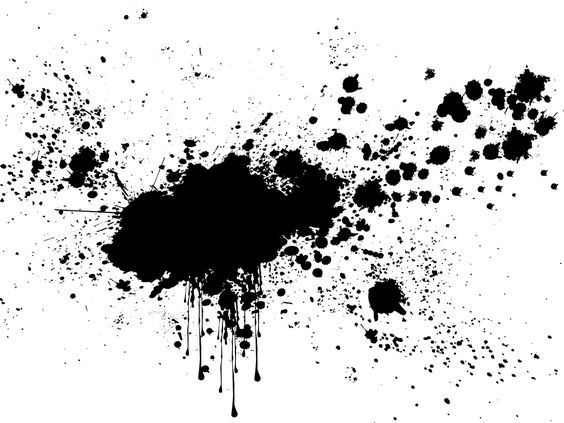Guest edited by Sasha Chaitow, PhD
Every medical practice reflects the context of the society or community in which it is rooted. Healing practices are among the most intimate of human activities, a refined art of survival and a common struggle against pain and death. As an ideal, they reflect the noblest expression of the human spirit, aiming to understand the nature of health, and leading both body and mind towards preservation, rehabilitation, or departure.
The interdisciplinary field of the History of Medicine has recorded, preserved, and interpreted material from the fields of Classics and Archaeology on pre-Christian practices in relation to Asclepius, Hippocrates, Galen, and their successors. However, disciplinary boundaries and specialized methodologies have left a gap in the literature, with few efforts made to explore the socioreligious belief system and resulting philosophical perspectives surrounding and sometimes driving the developments in healing practices in the Pagan context.
One significant element deriving from that philosophical content that survives in modern healing practices is that of vitalism – still a hotly contested matter among practitioners of holistic therapies and the scientific establishment. Equally, there is much cross-fertilization in modern times between contemporary Pagan sensibilities and integrated (also known as complementary or alternative) health practices, yet this also remains largely unexplored despite its potential for sociological, folkloric, and ethnographic perspectives.
We welcome scholars from a range of disciplines to explore and develop interdisciplinary studies that explore the impact, effect, form, and constituent elements of Pagan beliefs and/or customs in relation to perceptions and practices of health, disease, and healing. Historical studies are also welcome as long as they are fully documented and provide a novel angle, and documentation of the impact on contemporary healing practices is of particular interest. There are no geographical, chronological, or disciplinary limitations (ie., proposals may explore a topic from any tradition, in any historical period, from any relevant disciplinary or interdisciplinary perspective), but there must be a clearly established connection with Pagan beliefs and practices in relation to the chosen topic that rests on scholarly evidence and argumentation.
Topics of interest include, but are not limited to, the following:
- Hippocrates, Asclepius, and their legacy
- Mental health and Pagan beliefs
- Faith healing in the Pagan context
- Talismans and votives for healing
- Perceptions of disease in the pagan context
- Medical ethics
- Vitalism past and present
- Sacred anatomy
- Pregnancy and embryos
- Trepanning and Speaking to the gods
- “Like attracts like” and the principle of resemblance in herbalism and pharmaceutics
- Animal healing
- German Naturphilosophie; its roots and branches
- Is there a Pagan epistemology of medicine?
- Localised practices and beliefs (e.g. in Celtic; Siberian; Hellenic; Scandinavian pagan traditions).
- Traditional beliefs in Chinese medicine / TCM’s reception in the West
- Social perceptions of traditional medical practices
- Contemporary biopsychosocial clinical approaches and the Pagan patient
- Pagan beliefs and scientific literacy
Topics referring to esoteric, rather than overtly Pagan, belief systems will also be considered with the proviso that the belief system under discussion entails philosophical roots in pre-Christian (e.g. Platonic) thought. Examples might include Rosicrucian healing practices; Mesmerism and its impact; and topics in the history of homeopathy.
For the purposes of this special issue, “Pagan” is defined as followers of any polytheistic or animistic path including by not limited to Wicca, Druidry, Heathenism, Native Faith, or various tribal spiritualities.
How to submit and Important dates
Authors are invited to submit an abstract of no more than 350 words by 31st May 2021.
These will undergo editorial evaluation on a rolling basis until the deadline, after which no further abstracts will be considered. Successful entrants will be notified by 30th June 2021 or earlier, and will then be invited to complete and submit their proposed articles by 1st December 2021, after which all papers will undergo blind peer review and editorial review. A virtual conference is in planning to coincide with the launch of the print issue, at which successful contributors will be invited to present their work.
Please note that acceptance of the abstract does not guarantee acceptance of the final paper if flaws in the scholarly method or argumentation are found to be insurmountable, though editorial support will be provided throughout the submission and review process. Equally, papers of good quality that may not fit this particular special issue, may be considered for other issues of this journal.
We welcome submissions from both established and early-career or independent scholars. Proposals from active clinicians are also welcome, including case studies, but they must follow standard scholarly methodology and bear a predominantly Humanities-based readership in mind. Abstracts will be judged on their relevance to the theme and on the degree of innovation present; we are not looking for encyclopedia entries but original, innovative, and interdisciplinary explorations of these themes.
Journal Information
The Pomegranate: The International Journal of Pagan Studies is a semi-annual peer-reviewed journal published by Equinox Publishing. The journal is indexed in the following:
Scopus Abstract and Citation Database
- Religious & Theological Abstracts
- ISI Web of Knowledge
- EBSCO’s Academic Search Premier & Religion and Philosophy Collection
- European Reference Index for the Humanities (ERIH Plus)
- The American Theological Library Association (ATLA)
For information on the submission process see: https://journal.equinoxpub.com/index.php/POM/about/submissions
Please note that Pomegranate uses “Chicago-style” footnotes and bibliography. Follow this link for guidelines: https://www.chicagomanualofstyle.org/tools_citationguide/citation-guide-1.html


